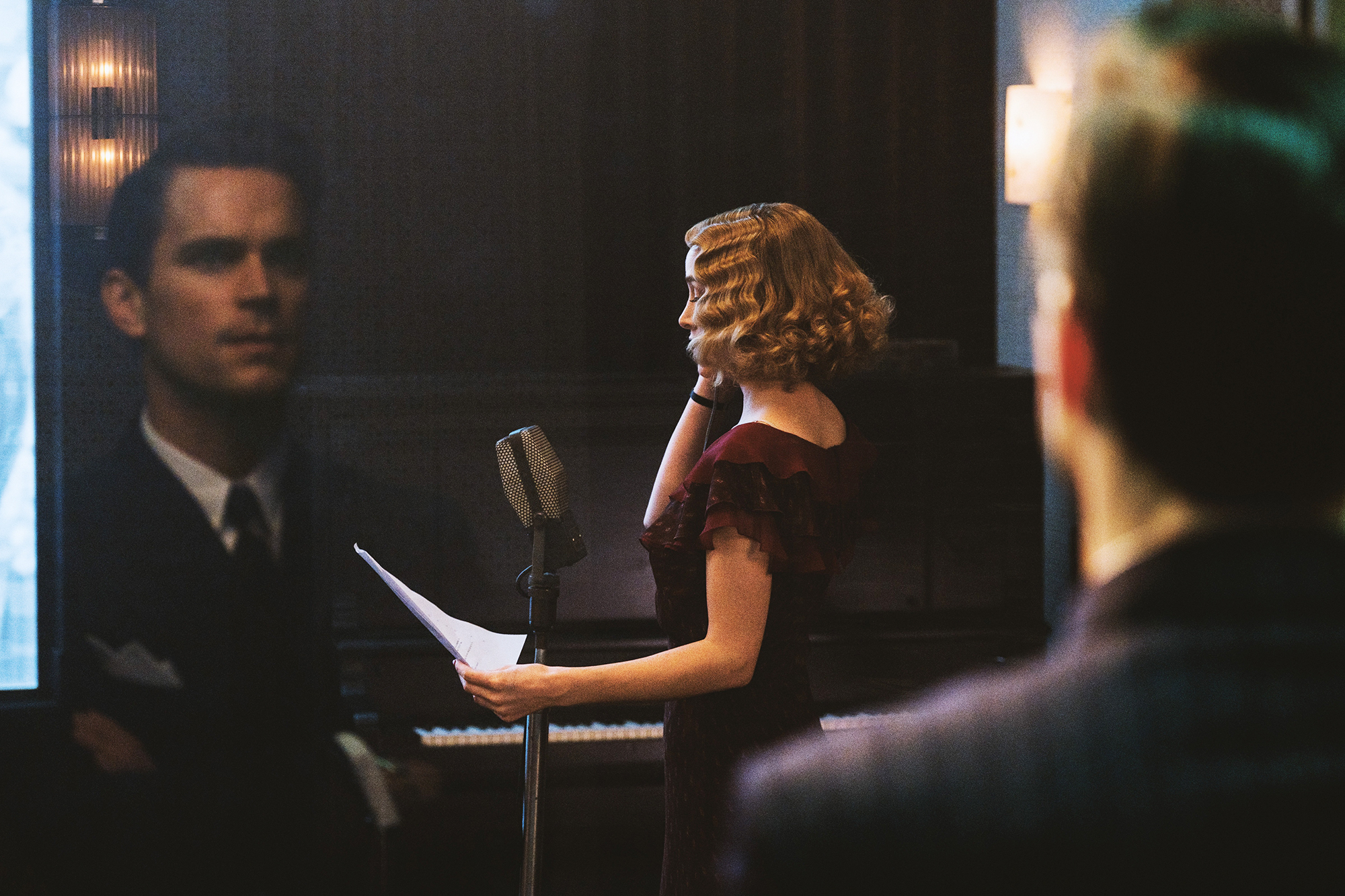
The Last Tycoon, an unfinished novel by F. Scott Fitzgerald published in 1941, a year after his death, is a nervy piece of work. The draft jitters with desperation, as if Fitzgerald were trying to craft, sentence by sentence and aphorism by aphorism, a hit. The perspective shifts almost at random and the plot, about a movie executive with barely hidden vices, skitters away from its author’s control. It’s plainly unfinished but full of neuroses and passion. That is to say, full of life.
In adapting it for the screen, Amazon has made a show that feels the opposite. The first season of The Last Tycoon unfolds slowly, taking time to nod at every aspect of the moviemaking industry and Los Angeles society in the 1930s. It’s beautiful–and damned if you compare it to its source material.
Title aside, the show seems more influenced by Mad Men than by Fitzgerald’s works. Monroe Stahr (Matt Bomer) is a sort of proto–Don Draper. Born to a scornful father, he changed his name and affected the mien of a successful man. Success as a producer followed. Women want to be with him, and men want to beat him–specifically, Kelsey Grammer’s Pat Brady, a rival executive consumed by jealousy.
Bomer, the star of White Collar, is amiably blank. He convinces you that Monroe responds to various psychological torments, including being a widower, by adopting the pose of vacuousness. That he left me wanting vastly more is maybe the point–as that’s how everyone who meets him seems to feel, including Pat’s wife, Rose, played by an aching Rosemarie DeWitt. And as Pat’s daughter Celia Brady, the ambitious young would-be producer who is the novel’s real protagonist, Lily Collins has the sort of rising gumption any fan of Judy Garland will recognize. She resists the urge to put a topspin of millennial irony on the role. And she sells this show’s devotion to an idea of the past as impossibly elegant.
The show will appeal to fans of Old Hollywood. It’s as lavish a re-creation of the bygone La La Land as FX’s Feud: Bette and Joan. Its side stories include the megastar (Jennifer Beals) with a secret, the bratty child star (Chloe Guidry) who is fed drugs to perform. Even thudding hints at what’s to come for the characters land gently. We see portents of the future in large part by meeting chic Fritz Lang and Marlene Dietrich. Tycoon is as sweetly addictive as box-office candy.
And yet I wish there were more. Tycoon, like Amazon’s less entertaining but equally glamour-glutted Zelda Fitzgerald drama Z: The Beginning of Everything, is a diverting series that uses history the way revelers at a Gatsby-themed party today use a strand of fake pearls. Tycoon tosses it on as a way to show that the past was different but also fun! Fitzgerald is often remembered beyond the classroom for the romantic drama of his life and times. But he wrote with crackling acuity about losing love and losing one’s mind and, above all, about the curse of living in the past. Amazon’s The Last Tycoon is about a man who’s good at his job and–contrary to Fitzgerald’s view of the human condition–the pleasure of retreating into historical fantasy. It’s a missed opportunity. One that, after a gorgeous 10 hours, you may not remember.
The Last Tycoon will stream on Amazon starting on July 28
More Must-Reads From TIME
- The 100 Most Influential People of 2024
- Coco Gauff Is Playing for Herself Now
- Scenes From Pro-Palestinian Encampments Across U.S. Universities
- 6 Compliments That Land Every Time
- If You're Dating Right Now , You're Brave: Column
- The AI That Could Heal a Divided Internet
- Fallout Is a Brilliant Model for the Future of Video Game Adaptations
- Want Weekly Recs on What to Watch, Read, and More? Sign Up for Worth Your Time
Contact us at letters@time.com